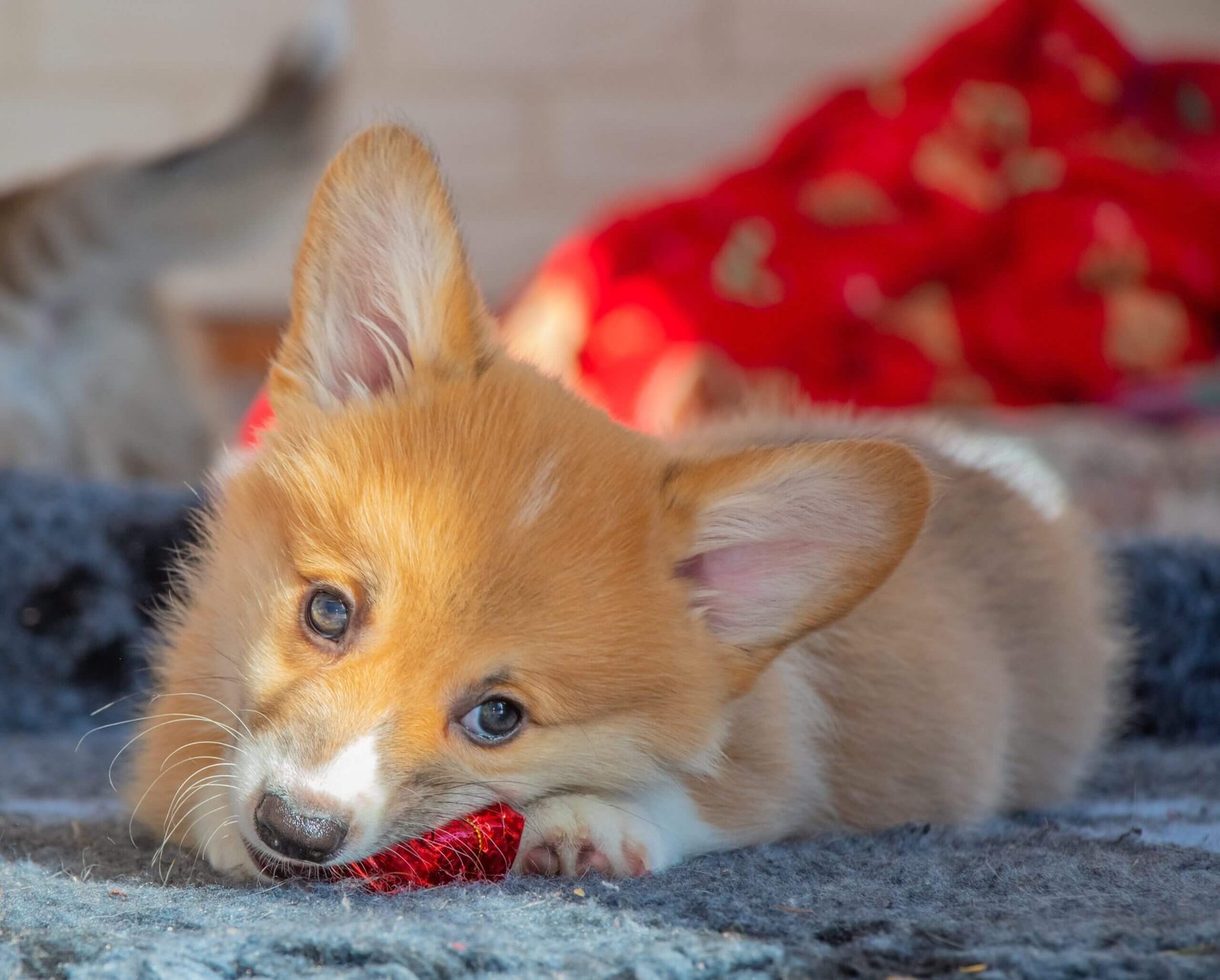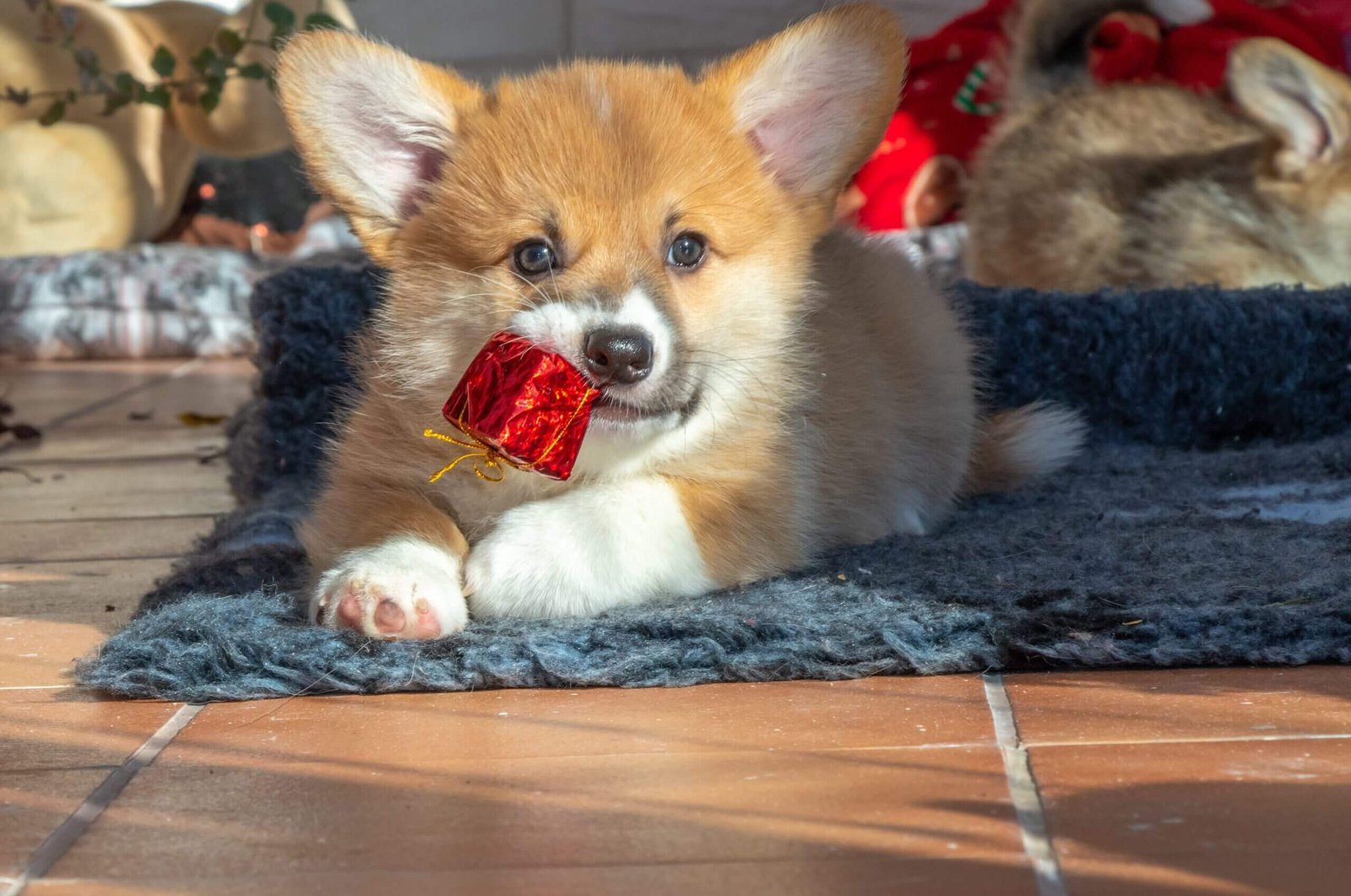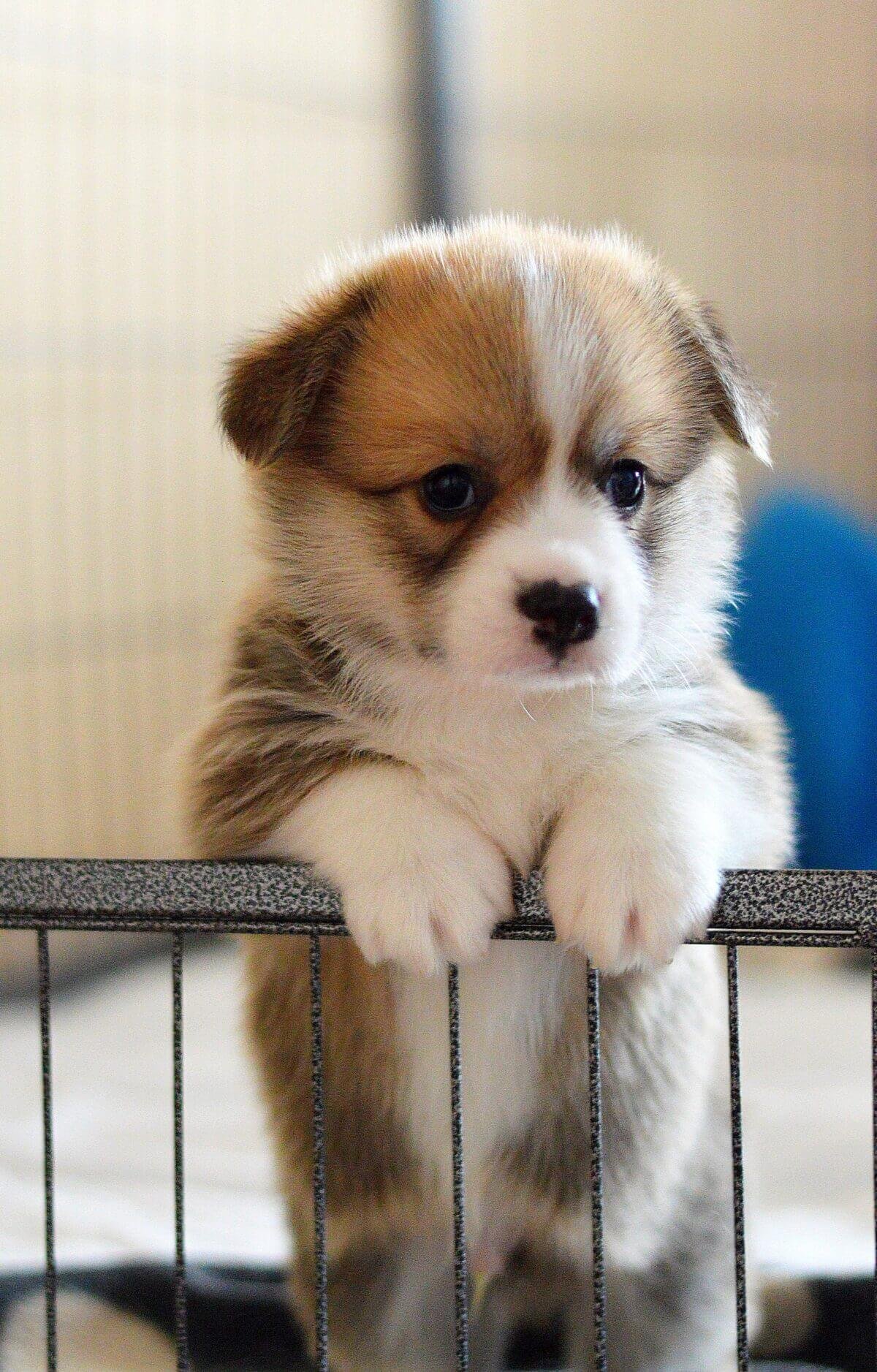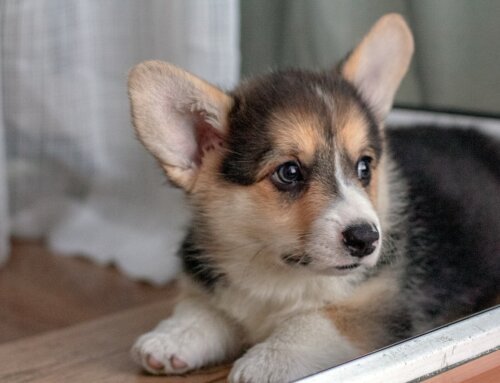Are you ready to welcome your Welsh Corgi into your life? If you are more panicked than overjoyed, worry not, we’ve all been there. Use this handy checklist to help you stay on top and gather all you need for your new puppy.

AUTHOR
Editorial Team
CATEGORY
Puppies
POSTED ON
2 November 2024
Adopting a corgi pup is a milestone and a pivotal moment in your life. All the more so, if you’ve never had a dog until now.
Before jumping for joy, though, you must get ready to welcome this new addition to your household. To begin with, you have to make sure you have all you need to be able to properly take care of your corgi’s needs. Otherwise, you will end up stressed out and wondering how to handle daily life with an energetic, demanding and often mischievous little pup.
Here’s What You Need for a New Puppy
To help you get organised, here’s a list of all the accessories, foods and other supplies you need to buy before the corgi arrives.
Nutritious, Age-Appropriate Dog Food
Choosing high-quality dog food that is appropriate for your corgi is no easy task. To begin with, your corgi’s nutritional needs will evolve throughout its life. Since the type of food a dog eats is determined by its age, size, health and activity levels, a young pup will need different nutrition than an adult or a senior dog. You should always consult your vet or talk to an expert at a pet store before picking a brand and type of food.
You can learn more about how to feed your corgi from young puppyhood way into old age with our Feeding Guide for Corgis.
A word of caution: Be careful what you feed your dog, not all foods are suitable for corgi pups, and some might be downright dangerous! For more info, always keep near a Checklist of Foods That Are Dangerous For Your Corgi.
Training Treats
Training your puppy is a vital part of its early development and socialising. As part of the training process, you will need treats to make your corgi pup pay attention to you and teach it how to obey commands.
You can buy treats from the pet store, or you can use regular foods that puppies can eat, such as cooked lean meat, small bites of apple, carrots or green beans. While your dog’s regular food can be used too in small amounts, it’s best to offer your puppy something different and more tempting; this way it will feel more motivated to do your bidding.
To learn more, check out our guide to The Best Commercial Dog Treats For Your Corgi.
Food And Water Bowls
For practical and hygienic purposes, it’s best to feed and water your dog from designated bows that only it uses. Sturdy, non-slip bowls are always the best bet, otherwise, your little corgi might make a mess while eating or drinking by spilling its water and food on the floor.
Wondering what materials to choose? Ceramic and stainless-steel bowls are easy to clean and maintain and are non-toxic to dogs.
Chew Toys
Corgis, just like any other dog breed, love chewing. There are many reasons for this. Chewing is a way through which dogs explore the world around them; it keeps their teeth clean and sharp, and it also provides a form of relaxation and anxiety relief. Small pups chew a lot when they start teething, between the ages of about 3 weeks and 6 months.
Do not punish or tell your corgi off for chewing. Instead, discourage it from nibbling on your furniture, belongings or shoes, and always have a supply of chew toys. Consult your local pet shop about the most suitable chew toys for a young corgi and whenever it tries to chew on your belongings, redirect its attention to its toys.

Don’t let your little Corgi pup chew random stuff
Poop Bags
Potty training your puppy is just as important as keeping your town clean. For one thing, you don’t want to get fined for littering. To this end, it’s important to always have a supply of poop bags. There’s a variety of products out there, from plain plastic bags to more eco-friendly biodegradable and compostable bags. Whatever you go with, make sure you buy a solid supply, because corgis tend to go multiple times a day. Yes, that’s a lot of poop! Pick it responsibly.
Collar and ID Tags
Did you know that at least one in every three dogs goes missing at some point? That’s a scary statistic! Furthermore, it’s a lot easier for a young untrained pup to get lost than it is for an older dog that knows its owner and its house. Finding your lost corgi is a lot easier if the pooch has a collar and a tag with its name and contact information. This also makes it much easier for local authorities to set it apart from strays. You can also add important medical info on the tag if your dog has any health conditions.
Leash and Harness
While your puppy is growing, it would be wise to use a harness and a leash. Corgis are very obedient and quick studies, which makes it very easy to teach them to walk off the leash. However, during the first few months of their life, you do not want to take any risks. Your little untrained and unruly pup could run under cars or do something else that’s dangerous.
Did you know this?
Due to their long body and short legs, corgis are at a higher risk of getting neck and spinal strain, as well as developing conditions such as herniated discs or even spinal nerve damage. That’s why, your corgi can benefit from a harness for added control and safety. The harness will distribute the pressure evenly across the dog’s body, lowering the risk of strain or injury.
Dog Bed
You can let your corgi sleep on your sofa or in your bed if you wish. However, when it’s still a young puppy, it’s a lot better for its training and for maintaining a routine if you provide it with its own designated dog bed. Dogs must learn where their sleeping area is early on in their development. Also, don’t forget that corgis shed a lot and it’s much easier for you to clean the fur from one bed than from all beds around the house.
Dog Crate
Buying a crate is optional, but it’s a very handy tool for several reasons. First off, it can serve as your corgi’s den where it can enjoy its downtime on its terms. Second, a crate can be used for training your corgi to be left alone or to leave you alone for a short period of time whenever you’re busy. Last but not least, a crate can be used for potty training because a dog won’t soil its crate. The crate should be large enough to allow your corgi to stand in it and turn around.

Carrier and Car Safety Equipment
If you plan on travelling with your corgi on public transport, you should consider getting a dog crate, and if you plan on driving it around, it’s advisable to have automobile safety equipment. Many public transport authorities do not allow you to get a dog on board a train or airplane unless it’s inside a carrier. As for travelling by car, protecting your corgi from accidents or even minor injuries when you hit the brakes too abruptly, is crucial to keeping it healthy and safe.
Grooming Accessories
Corgis shed obscenely a lot, especially during the warmer months of the year. That’s why it’s important to have a dog grooming brush or slicker and use them regularly. You will also need dog nail clippers and dog shampoo so you can give your corgi a bath whenever it gets too messy, which it will, trust us.
Want to learn more about how to groom your corgi? Read our in-depth grooming guide.
A Few Final Tips
At the beginning, it might be easier for you, if you have a dedicated room, nook or storage box of some sort where you can keep everything you need for your puppy. Staying organised will help you to avoid getting stressed out when you need something urgently, and this in turn will make things a lot smoother in those first few days.
Once you have bought and prepared all the equipment and supplies needed for a corgi pup, you have to get ready to welcome and integrate your new family member into the household during those first few crucial days and weeks. Find out how to prepare yourself, your family members and your home for the little pup with our guide.

